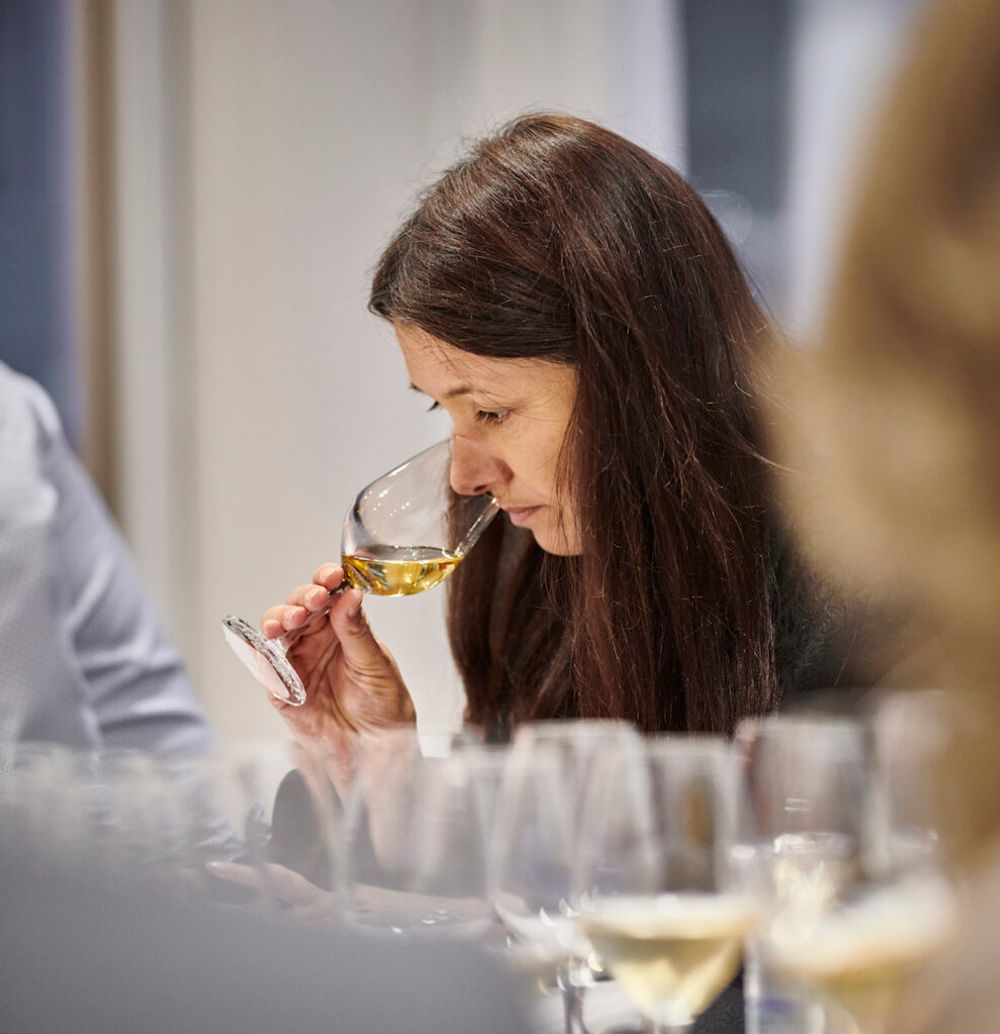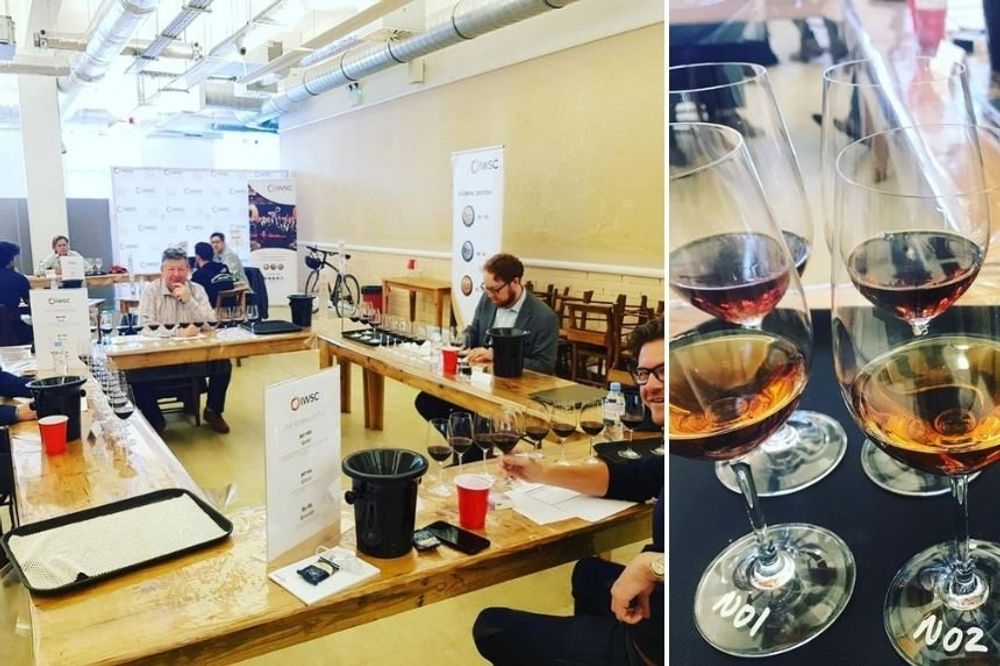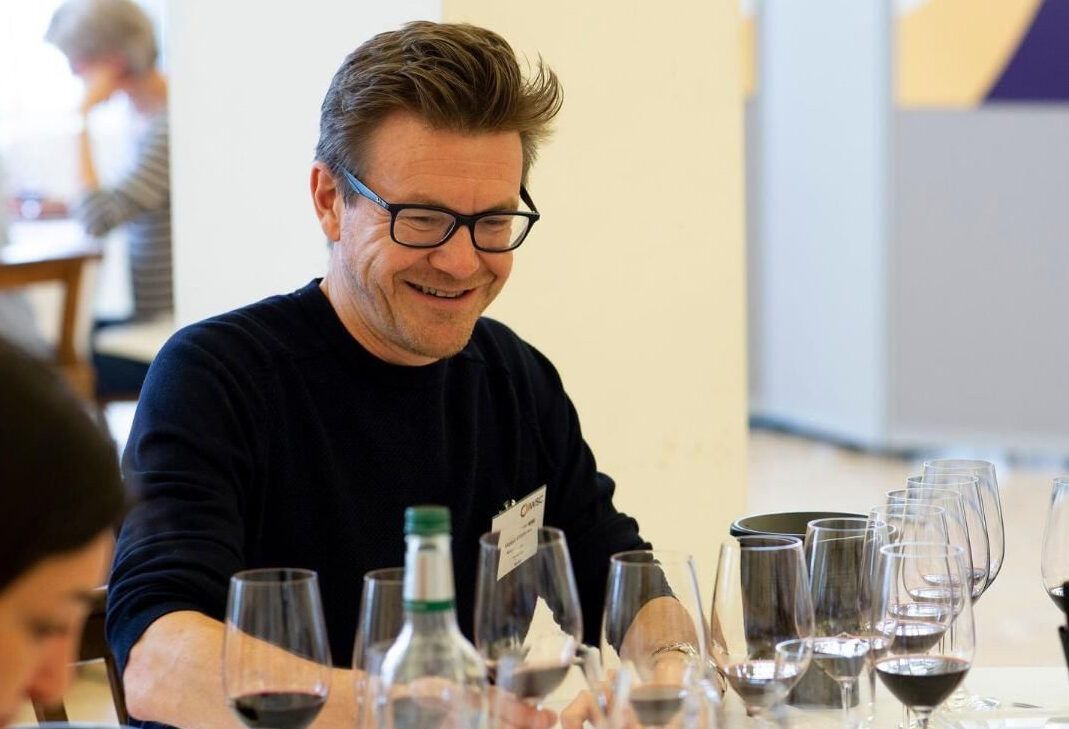Producers need to ask ‘what are they going to do for me? Are they just going to give me a medal or are they going to work really hard to promote my wine to the audience I want?’
The Buyer’s David Kermode has judged at the International Wine and Spirits Competition (IWSC) for the last three years and has witnessed first hand the sweeping changes Christelle Guibert has introduced to the process, from the smaller, more focused, panels, to the broader balance of judges with their respective skill sets, and the focus on discussion around individual wines, with the most recent reforms coinciding with the necessity to make the process Covid-compliant.

Christelle Guibert © Niels Busch
The judging sessions, first Northern then Southern Hemisphere, are now concluded. You must be relieved?
Yes, very relieved! It has been a real rollercoaster. We were scheduled to do our wine judging in May and our spirits in June and neither could happen. There was so much uncertainty about when we could do it, and then how we were going to do it. The first thing I did was to contact our key judges to see how they felt about travelling and judging and they were all excited and could not wait, so that was reassuring. So after that, it was a case of how we could do it while observing the various Covid-19 protocols. I wanted to keep the convivial element because I think it’s important, while respecting social distancing.
I am so very happy with how it has gone. I think we have learnt a lot this year and there are things that we introduced because of Coronavirus that we are going to keep because actually the judges preferred it so, for example, we used to use round tables but the U-shaped set up is actually better, so it will stay.
Cases of Covid-19 rose sharply in the weeks leading up to the Southern Hemisphere judging (21-25 September) so were you anxious that it may not happen at all?
Yes, I got really nervous ten days before (judging was due to start) when the ‘rule of six’ was announced so I had to go back to look at the regulations to see where we fitted in. Fortunately it is classed as a work environment, so as long as we could ensure two metre distancing, we were fine to go ahead, but I could really feel the pressure building every day watching the news. I was worried, although I was sure that we could do it, but I am obviously very glad it is now over!
You put a big emphasis on debate between the judges on the panels. Why?
Because for me judging is not a numbers game. It is all about conversation and making sure that you really spend a decent amount of time on each wine, analysing it properly individually and then discussing it, because otherwise you end up with lower averages if you don’t discuss it. You could have three judges, three or four points apart, and you just end up with an average score. We are all human, when you taste a lot of wine, sometimes you might miss something, so by having a panel of three, then a discussion, plus the (supervision of the) judging committee, you ensure that every wine gets a fair hearing. Also, sometimes, personal tastes can influence a score, even though it is a perfectly well made wine, so the discussion is key to ensuring that does not influence the competition.
You have introduced a raft of reforms since you took over, most obviously to the judging panels. What have you been seeking to achieve?
When I joined, we had panels with six or seven judges. For me, the more judges you have, the more average scores you get. So I wanted to focus on smaller panels with members who are at the top of their game and judge all the time, who have built a reputation for tasting blind and really know what is going on in the market. This year, we have had a really great team who have been available to dedicate more time to the judging sessions, so we have achieved real consistency.

Left: Roger Jones, Alex Hunt MW and Alistair Cooper MW at the IWSC 2020 judging. Right: A flight of fortified wines, a category in which Australia excelled.
There is a member of the judging committee presiding over the panels each day, which makes this competition a bit different. How important is that?
It is so important because that person is the only one who can oversee the whole room and can ensure consistency between panels, so on your table (David), you could be giving a gold medal to an Australian Shiraz and on the table next door they could also be giving a gold to another Shiraz and the member of the judging committee is the only one who can put those wines side by side to take a view. Also, that person can look at the individual scores on the panels to ensure they are in harmony. If the scores are really different, then they can step in, taste the wine, offer some advice and perhaps help to recalibrate the judges. It is a key role.
How do you see the future for international wine competitions?
I think they are really important because we know from research that third party endorsement or medals really influence purchasing decisions. Producers need to stand out from the crowd as it’s a very competitive market, so having that endorsement is really important. I think the awards industry has been a victim of its own success as there are so many competitions now, so producers really need to pick the right one for them. I always say bigger doesn’t necessarily mean better. Producers need to ask ‘what are they going to do for me? Are they just going to give me a medal or are they going to work really hard to promote my wine to the audience I want?’ Also, producers need to look at who is judging the wines. Are they relevant to the market they are interested in?
So what is next for the IWSC?
This year has been very challenging, so we have had to put some of our changes on hold. I think we have established really strong judging panels this year and I am convinced that social distancing will still be with us next year, so I don’t see a lot of changes to the set-up for next year. We definitely have some major projects in the pipeline but I think we may have to wait for 2022 for those!
For full results of the IWSC Southern Hemisphere awards click here. The IWSC 2020 Trophy winners will be announced on Monday, October 12th.
The IWSC is a Buyer partner, to find out more about them click here.
David Kermode is an IWSC judging panel member, writer, broadcaster and consultant with his own website vinosaurus.co.uk






























